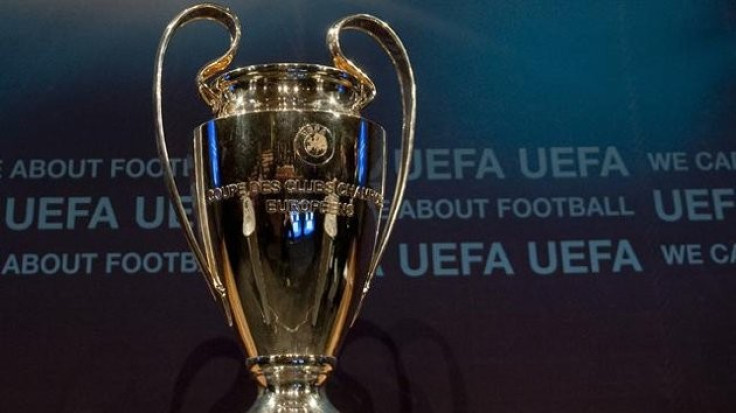Could Arsenal Take Advantage of Balanced Champions League Draw?
The Champions League may have its favourites, its stars, its glitz and its glam, but one thing the continent premier club competition is rarely devoid of is unpredictability. Few, for example, would have foreseen Chelsea going all the way to the final last season, beating Bayern Munich on their own patch having previously dispatched of Barcelona in the semi-final.
The 2012/13 campaign is set up for a similarly chaotic finale. The highest ranked sides from the UEFA coefficient rankings are split evenly between the group winners and the runners-up ahead of the last-16 draw on 20 December meaning the mouth-watering ties usually set aside for the quarter and semi-final may present themselves at an earlier date.
AC Milan and Real Madrid, the competition's two most successful clubs will be among the non-seeded teams for the last-16 draw, with 2006 finalists Arsenal and 2004 winners FC Porto among those lying in the runners-up pot. The winners group, as well as Uefa's top three sides in the coefficient ranking, includes Paris Saint Germain, Schalke 04 and Malaga.
Such is the split of Europe's elite and the competitions expected whipping boys, no advantage has been gained by finishing first or second in the group phase. In fact, using Uefa's coefficient table, the biggest threat comes from those sides who finished second.
The average coefficient ranking of those first place finishers in 24, while for those who came runners-up the average is 20. After a week in which Uefa suggested a revamp of Europe's two major club competitions, the nature of the qualifiers from the eight groups and the last 16 draw assures this season will be among the most open in recent years.
For those sides who missed out on first place on matchday six, namely Arsenal, the line-up for the draw for the first knock-out phase suggest no significance should be put on that particular failure. The old cliché that 'every game is difficult at this stage' could not be more true.

Bar the restrictions on facing a group opponent or a team from the same country, the draw could set up a series ties more befitting the latter stages than the second round. Furthermore, as has been shown in previous years, the implications of being drawn away from home in the first leg will be further diluted.
Looking at the last 18 open draw ties played in the Champions League during the last three seasons, half of the teams who played the first leg at home eventually won through; expect a similar split this year also.
Despite their unbeaten start to the campaign; Barcelona's brittle defence under Tito Vilanova, Chelsea's early exit as holders, the miraculous performances of cash-strapped Malaga and the resilience and heart shown by Celtic suggests you predict an eventual winner at Wembley in May at your peril.
The contrasting fortunes of the remaining English clubs; Arsenal and Manchester United, in the group phase now counts for very little in the last 16, with both sides potentially exposed to the best Europe has to offer, in stark contrast to previous campaigns.
In Arsenal's case particularly, the omens for them to make decent progress are good. Of the four occasions they have exited the competition in the last-16, three of those came having finish top of their Champions League group. The odds suggest that at least one team will get through to the last four having avoided any of the last three different finalists and Jose Mourinho's Real Madrid.
League commitments suggest those at the top of Uefa's coefficient rankings will have other distractions and if luck is on their side, Arsenal could be the side to take advantage and fly under the radar. But if you're looking for a tip, expect the unexpected.
© Copyright IBTimes 2024. All rights reserved.






